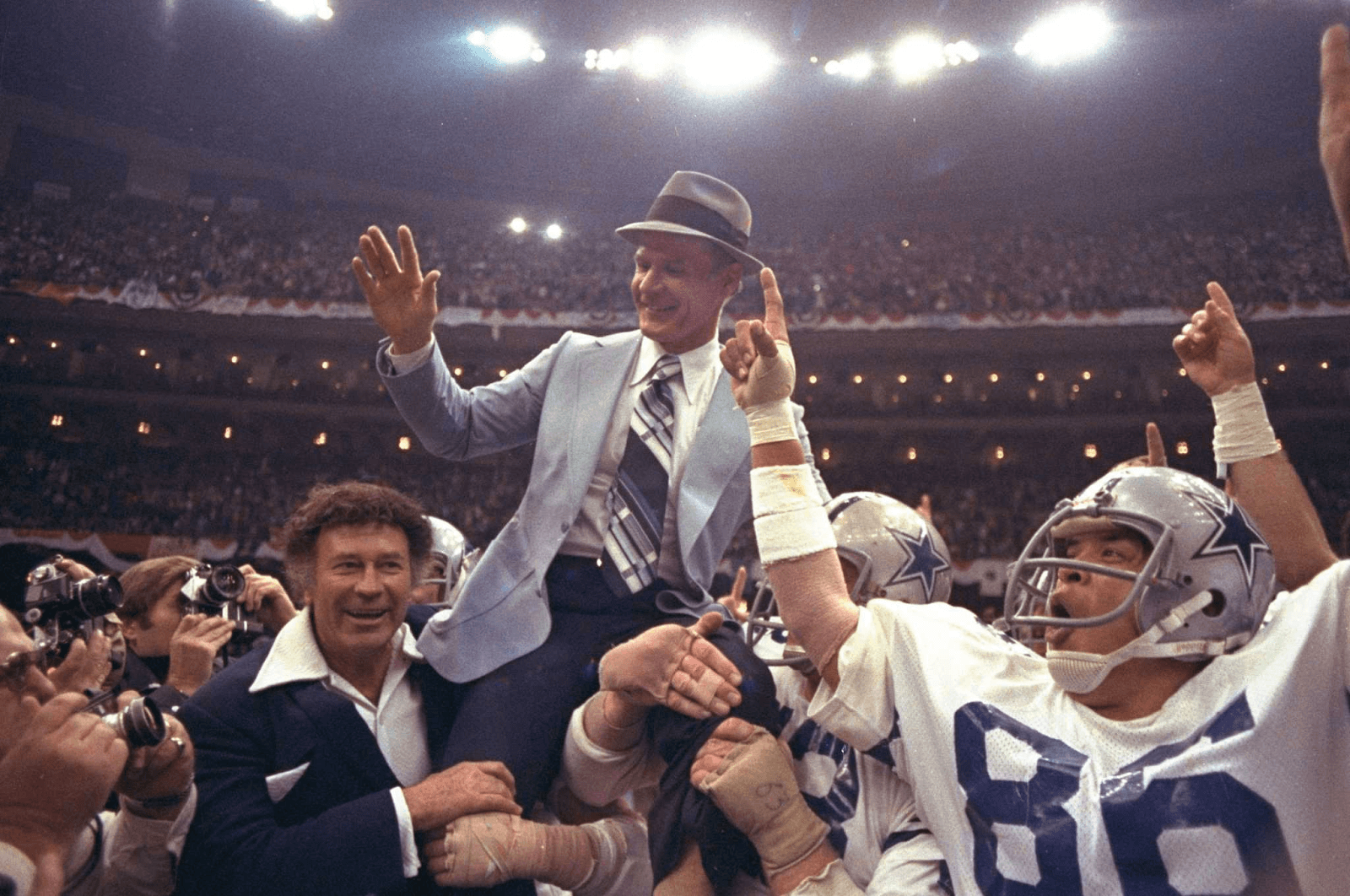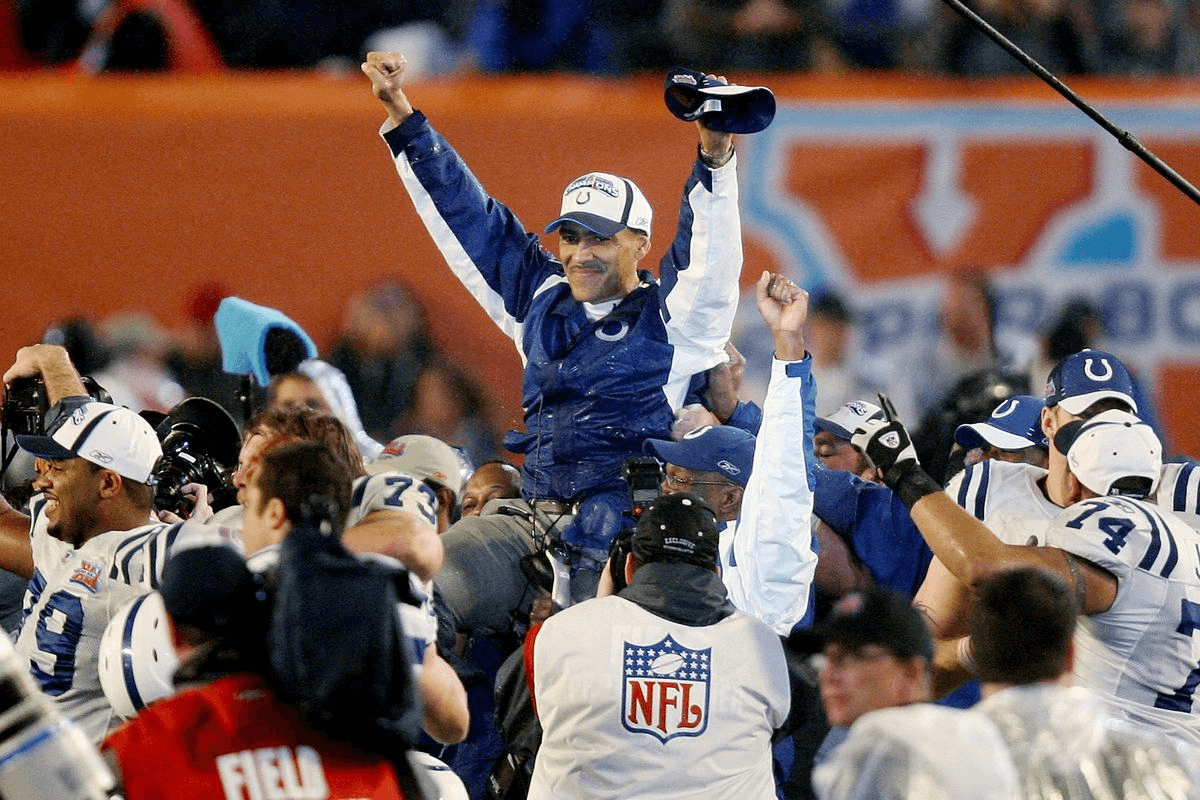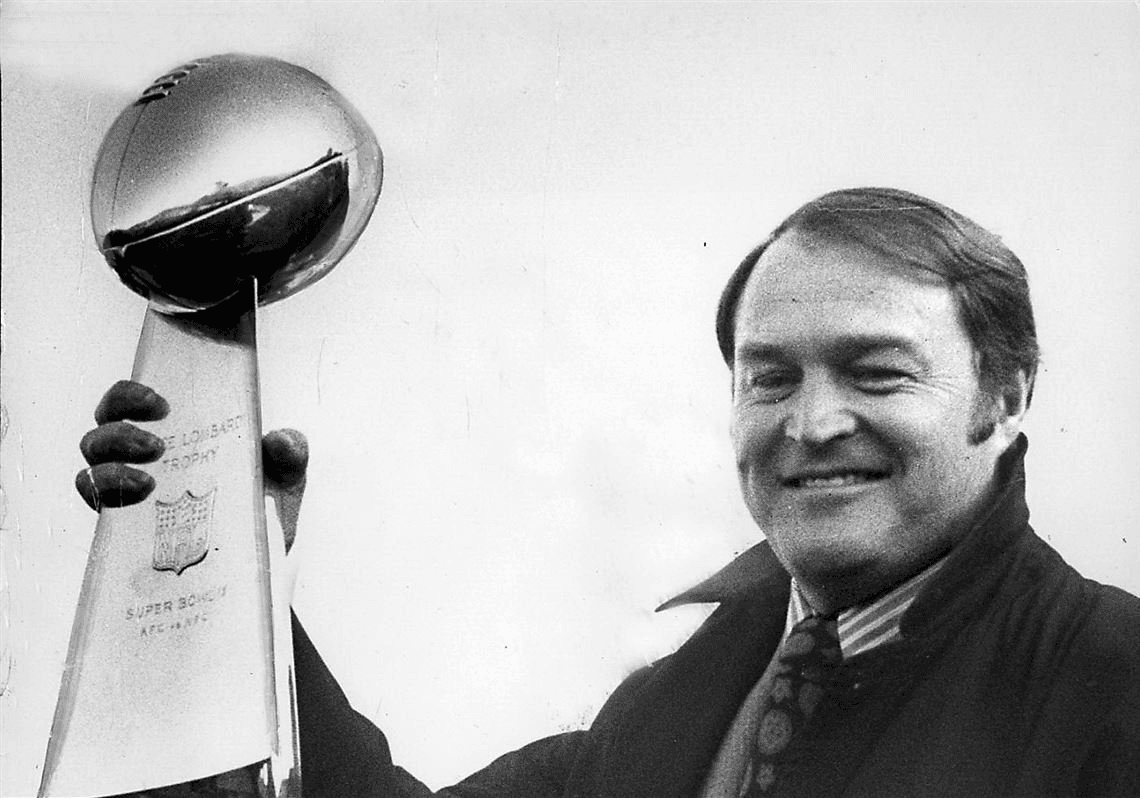Table of Contents
Table of Contents
- 1. Defining a Vision and Setting Goals
- 2. Leading With Confidence and Empathy
- 3. Embracing Adaptability and Problem-Solving
- 4. Building Team Cohesion and Accountability
- 5. Championing a Growth Mindset
- 6. Recognizing the Value of Discipline and Hard Work
- Mastering the Agency Game Starts With Exceptional Leadership
7,000+ agencies have ditched manual reports. You can too.
Free 14-Day TrialQUICK SUMMARY:
Great leaders know success isn’t just about strategy—it’s about inspiring teams, adapting under pressure, and staying committed to the bigger picture. Super Bowl-winning coaches have mastered these skills in some of the toughest arenas imaginable. Discover powerful leadership lessons from legendary NFL coaches to achieve championship-level success at your agency.
Leadership under pressure is a universal challenge, whether you’re calling plays on the field or managing a fast-paced marketing agency.
Super Bowl-winning coaches operate in some of the most high-stakes environments imaginable and have mastered the art of guiding their teams to victory. Their lessons go far beyond the gridiron, offering valuable insights for agency leaders striving to build cohesive teams, execute strategies, and achieve their goals.
As Vince Lombardi, the legendary Green Bay Packers coach whose name adorns the trophy handed to Super Bowl winners, once said:
Leaders are made—they are not born. They are made by hard effort, which is the price all of us must pay to achieve any goal that is worthwhile.
Vince Lombardi

Vince Lombardi celebrates with his team. His discipline and leadership made him a legend. (Credit: Marvin Newman/Vince Lombardi Cancer Foundation)
In this article, we’ll explore the timeless wisdom of Super Bowl coaches and how their principles will help you inspire your team, streamline operations, and overcome the challenges of agency life.
1. Defining a Vision and Setting Goals
Every championship team starts with a clear vision and a well-defined game plan. For agency leaders, this means setting ambitious but attainable goals and mapping out the steps to achieve them. But it’s not just about the destination—it’s about the journey and the discipline to follow through.
Tom Landry, the celebrated head coach of the Dallas Cowboys, emphasized the importance of this process:
Setting a goal is not the main thing. It is deciding how you will go about achieving it and staying with that plan.
Tom Landry

Always calm and composed—and wearing his signature hat—Tom Landry led the Dallas Cowboys to victory with strategic brilliance. (Credit: Associated Press)
The same principle applies to agencies. Whether your goal is to onboard a major new client or scale your team, success hinges on crafting agency growth strategies that are clear, actionable, and focused on measurable outcomes, even when the going gets tough. A solid plan helps you and your team tackle challenges and maintain focus amidst competing priorities.
In Super Bowl coaching, sticking to the plan often means the difference between victory and defeat. For agency leaders, it could mean the difference between growth and stagnation.
2. Leading With Confidence and Empathy
A team’s performance is often a reflection of its leader. When agency leaders exude confidence and remain composed under pressure, their teams are more likely to follow suit. Tom Landry understood this dynamic, stating:
Leadership is a matter of having people look at you and gain confidence, seeing how you react. If you’re in control, they’re in control.
Tom Landry
For agencies, control isn’t about micromanagement—it’s about showing your team you have a steady hand on the wheel, even in turbulent times. When leaders communicate clearly and stay calm, they create a ripple effect of confidence that empowers their teams to tackle challenges head-on.
Equally important is empathy. Tony Dungy, the first Black coach to win a Super Bowl, highlighted the human side of leadership:
The secret to success is good leadership, and good leadership is all about making the lives of your team members or workers better.
Tony Dungy

Tony Dungy celebrates a historic Super Bowl win, showcasing the power of leadership rooted in empathy and inspiration. (Credit: NFL)
For agency leaders, this might mean actively listening to team members’ challenges, celebrating their achievements, or ensuring they have the tools and support needed to succeed.
Confidence without empathy risks creating a disconnect, but when paired together, they form the foundation of trust and collaboration—a winning formula for any team.
Impress clients and save hours with custom, automated reporting.
Join 7,000+ agencies that create reports in minutes instead of hours using AgencyAnalytics. Get started for free. No credit card required.
3. Embracing Adaptability and Problem-Solving
Success in any competitive arena requires adapting and solving problems in real time. For agency leaders, this means staying flexible when strategies need tweaking or unexpected obstacles arise.
Chuck Noll, who led the Pittsburgh Steelers to four Super Bowl victories, encapsulated this lesson:
As you gain experience, you mature as an individual, and along with that comes the confidence that you have the ability to solve problems.
Chuck Noll

Chuck Noll, the mastermind behind four Steelers Super Bowl titles, reflects the quiet confidence of a problem-solving leader. (Credit: Chuck Noll Foundation for Brain Injury Research)
Adaptability doesn’t mean abandoning a plan at the first sign of trouble—it means refining it when necessary. Whether reallocating resources to meet an urgent client request or adjusting campaign strategies based on new data, agency leaders must balance persistence with pragmatism.
Recognizing that setbacks are inevitable is a must. Bill Walsh, one of the NFL’s most innovative coaches, offered this perspective:
Failure is part of success, an integral part. Everybody gets knocked down. Knowing it will happen and what you must do when it does is the first step back.
Bill Walsh
In agency life, a failed campaign or losing a client feels like a major blow. However, leaders foster resilience in themselves and their teams by viewing these moments as learning opportunities. The ability to pivot, problem-solve, and bounce back stronger often separates great leaders from the rest of the pack.
4. Building Team Cohesion and Accountability
Success hinges on teamwork in both football and agency management. The most effective leaders create an environment where collaboration thrives and team members understand their role in achieving collective goals.
Mike Shanahan, who coached the Denver Broncos to back-to-back Super Bowl titles, emphasized the importance of unity:
There can be no separation in your organization. You win as a team, and you lose as a team.
Mike Shanahan
Fostering this sense of togetherness requires clear communication and shared accountability for agencies. When everyone—from account managers to creatives—understands how their contributions impact the bigger picture, collaboration is facilitated, and the agency is positioned for sustained client success.
Accountability is another cornerstone of strong teams. Bill Belichick, one of the NFL’s most successful coaches, highlighted how even small lapses can disrupt the entire system:
You can play hard. You can play aggressive. You can give 120%. But if one guy is out of position, then someone’s running through the line of scrimmage, and he’s going to gain a bunch of yards.
Bill Belichick

Focused and strategic, Bill Belichick exemplifies the discipline and adaptability that define a championship mindset. (Credit: Jeff Haynes/AFP/Getty Images)
In agency life, this ensures everyone meets their responsibilities and understands how their actions—or inactions—affect the team. Leaders who instill accountability create a culture of trust where teams feel supported and motivated to deliver their best work.
5. Championing a Growth Mindset
The best leaders inspire their teams to strive for continuous improvement, push boundaries, and embrace the mindset of champions. For agency leaders, fostering a growth-oriented culture will unlock their teams' full potential and drive long-term success.
Pete Carroll, head coach of the Seattle Seahawks, spoke about the power within individuals and the importance of unlocking it:
Each person holds so much power within themselves that needs to be let out. Sometimes they just need a little nudge, a little direction, a little support, a little coaching, and the greatest things can happen.
Pete Carroll

With energy and optimism, Pete Carroll embodies the motivational leadership that drives teams to unleash their full potential. (Credit: Sports Illustrated)
Leaders help individuals grow personally and professionally by providing constructive feedback, empowering team members with new challenges, and celebrating small wins.
Hall of Fame football coach Bill Walsh, known for his strategic brilliance, articulated the essence of a growth mindset:
Champions behave like champions before they are champions.
Bill Walsh
For agencies, this means cultivating habits of excellence and fostering a culture that values preparation, adaptability, and resilience. Teams that adopt this mindset don’t wait for success to define them—they operate at a championship level every day, paving the way for bigger achievements.
When agency leaders champion a growth mindset, they equip their teams to face challenges with confidence, embrace opportunities, and consistently aim higher.
6. Recognizing the Value of Discipline and Hard Work
Discipline is the bedrock of success in both sports and business. For agency leaders, instilling a culture of discipline ensures that teams remain focused, productive, and prepared to tackle challenges head-on.
John Harbaugh, who led the Baltimore Ravens to a Super Bowl victory, famously said:
Discipline is not a light switch. Discipline is a way of life.
John Harbaugh

Discipline in action—John Harbaugh’s leadership style turned challenges into triumphs on the path to Super Bowl glory. (Credit: Sports Illustrated)
In agency life, this might mean setting clear expectations, maintaining consistency in processes, or adhering to deadlines without compromising quality. Discipline creates a sense of structure and reliability, allowing teams to work more efficiently and clients to trust their agency’s delivery.
At the same time, hard work and commitment are non-negotiable. Vince Lombardi’s words remain timeless:
The quality of a person’s life is in direct proportion to their commitment to excellence, regardless of their chosen field of endeavor.
Vince Lombardi
This principle applies directly to agencies aiming for sustained success. Whether refining a pitch for a major client, dedicating time to professional development, upskilling your team, or seeking advice from a mentor, a commitment to excellence in all aspects of work sets great agencies apart.
Mastering the Agency Game Starts With Exceptional Leadership
Super Bowl-winning coaches aren’t just masters of the game—they’re masters of leadership, strategy, and inspiration. Their wisdom offers timeless lessons for agency leaders who aim to achieve greatness in their own high-stakes environments.
Whether it’s Vince Lombardi’s belief that leaders are made through effort, Bill Walsh’s call to focus on the process rather than the prize, or Mike Shanahan’s reminder that success is a team effort, these insights highlight the qualities that define exceptional leadership.
Agency leaders should take a page from these coaching legends by fostering team cohesion, championing a growth mindset, and maintaining the discipline to pursue excellence daily. As Dick Vermeil so eloquently put it:
When you believe in yourself and the people you surround yourself with, you will win something really big someday.
Dick Vermeil

With an unwavering belief in his team, Dick Vermeil turned vision and dedication into a Super Bowl championship. (Credit: ESPN)
The playbook is clear: Lead with vision, confidence, and empathy. Stay adaptable and disciplined. And most importantly, inspire your team to believe in what’s possible.

Written by
Francois Marchand brings more than 20 years of experience in marketing, journalism, content production, and artificial intelligence (AI). His goal is to equip agency leaders with innovative strategies and actionable advice to succeed in digital marketing, SaaS, and ecommerce.
Read more posts by Francois MarchandSee how 7,000+ marketing agencies help clients win
Free 14-day trial. No credit card required.






